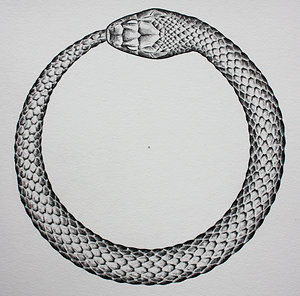About Psychoanalysis
Analysis provides a unique opportunity for intensive exploration of the personality and underlying patterns of behaviour. It is a process that fosters the individual’s understanding of themselves and their difficulties and the way they relate to others. The analysand (the person in analysis) and the analyst work together to explore troublesome and often longstanding conflicts that disturb and limit quality of life in the present. This process can bring about deep-seated change.
At the core of analysis is the relationship with the analyst. It is very likely that any difficulties that the person experiences in their life will manifest themselves in the relationship with the analyst in some way (this is known as the transference). This is to be expected and is, in fact, helpful as the analyst and analysand can then address these difficulties first-hand and work them through together.
The process of analysis can be difficult and painful at times, and some courage and resolve is needed by the analysand in order to face the issues that may arise.
Analysis is usually 4 to 5 times a week, but often begins as once or twice weekly therapy and then builds up.
The beginning - Assessment
There is always at least one and often two initial consultations where I meet clients in order to discuss the difficulties in a secure and confidential setting.
These initial consultations allow the person to discuss their needs and difficulties, to see how they feel about working with me, and to get a sense of what analysis is like, and to ask any particular questions that may arise.
Toward the end of this initial consultation process I discuss whether it is felt that analysis or psychotherapy could be of benefit to the individual, and will make recommendations concerning frequency of meetings or whether an alternative form of therapy would be more suitable. On these occasions I may be able to make a referral to another therapist if that appropriate. The individual can then take time to consider what is practicable for them and discuss this or any other issues with me.
How long will the psychoanalysis or psychotherapy last?
It is very difficult to say at the outset how long an analysis may last as this will relate uniquely to the individual and their particular needs and aims. It is a process that develops at its own pace. Occasionally, an individual will come with a very definite and particular difficulty that needs attention and it may be that only a few sessions are necessary in order to get the problem into some form of perspective.
However, what may simlpy seem like a hurdle can turn out to be related to more deep rooted difficulties with the work requiring more time and/or a greater frequency of meetings.
Psychoanalysis or psychodynamic psychotherapy?
The terms 'psychoanalytic' and 'psychodynamic' are both used to describe psychotherapy based on psychoanalytic principles.
It would be overly simplistic to say that the difference between psychodynamic and psychoanalytic work is based on frequency of sessions (psychoanalysis can be up to 4/5 times per week), but frequency is a way of indicating the factors involved in developing the depth of work in relation to unconscious dynamics, transference and countertransference. In addition, the dynamics relating to frequency link to the time in-between the sessions and how much the focus of the work is on the patient/therapist and how much this is affected by external realities and relationships. In less intense work, e.g. once weekly, the dynamics of the patient’s internal world are more often equally engaged with the external world, whereas with more intense work there is an increasing intensity of focus on the patient/therapist relationship in relation to the clinical work.
As trained Jungian analyst however, I generally adopt an analytic attitude to all of my work as it is the underpinning of my thinking.
While therapy in itself cannot fix problems, the insight it provides can help people think about their problems differently and this can in turn help them to manage these problems more creatively and constructively.



